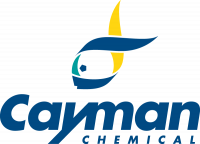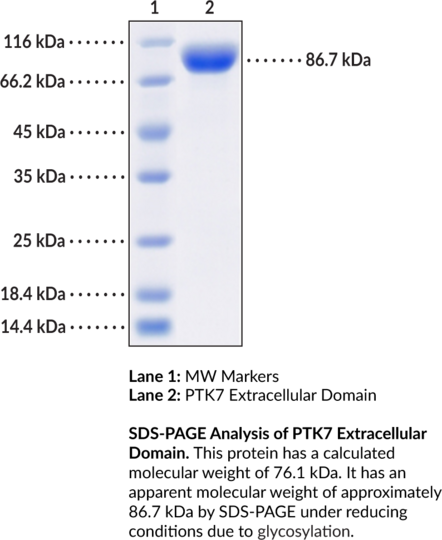Cookie-Einstellungen
Diese Website benutzt Cookies, die für den technischen Betrieb der Website erforderlich sind und stets gesetzt werden. Andere Cookies, die den Komfort bei Benutzung dieser Website erhöhen, der Direktwerbung dienen oder die Interaktion mit anderen Websites und sozialen Netzwerken vereinfachen sollen, werden nur mit Ihrer Zustimmung gesetzt.
Konfiguration
Technisch erforderlich
Diese Cookies sind für die Grundfunktionen des Shops notwendig.
"Alle Cookies ablehnen" Cookie
"Alle Cookies annehmen" Cookie
Ausgewählter Shop
CSRF-Token
Cookie-Einstellungen
FACT-Finder Tracking
Individuelle Preise
Kundenspezifisches Caching
Session
Währungswechsel
Komfortfunktionen
Diese Cookies werden genutzt um das Einkaufserlebnis noch ansprechender zu gestalten, beispielsweise für die Wiedererkennung des Besuchers.
Facebook-Seite in der rechten Blog - Sidebar anzeigen
Merkzettel
Statistik & Tracking
Endgeräteerkennung
Kauf- und Surfverhalten mit Google Tag Manager
Partnerprogramm
| Artikelnummer | Größe | Datenblatt | Manual | SDB | Lieferzeit | Menge | Preis |
|---|---|---|---|---|---|---|---|
| Cay40523-100 | 100 µg | - | - |
6 - 10 Werktage* |
467,00 €
|
||
| Cay40523-1 | 1 mg | - | - |
6 - 10 Werktage* |
3.028,00 €
|
Bei Fragen nutzen Sie gerne unser Kontaktformular.
Bestellen Sie auch per E-Mail: info@biomol.com
Größere Menge gewünscht? Bulk-Anfrage
Bestellen Sie auch per E-Mail: info@biomol.com
Größere Menge gewünscht? Bulk-Anfrage
Inactive tyrosine-protein kinase 7 (PTK7) is a transmembrane receptor involved in morphogenesis.... mehr
Produktinformationen "PTK7 Extracellular Domain (human, recombinant)"
Inactive tyrosine-protein kinase 7 (PTK7) is a transmembrane receptor involved in morphogenesis. It is composed of a signal peptide, seven immunoglobulin-like (Ig-like) domains, a transmembrane domain, a juxtamembrane domain, and a catalytically inactive tyrosine kinase domain. PTK7 is expressed in pancreas, kidney, liver, lung, and placenta, as well as brain, heart, and melanocytes, and localizes to cell-cell junctions. It also undergoes alternative splicing to generate isoforms that exhibit tissue-specific distributions. Soluble PTK7 is produced by proteolytic cleavage of the extracellular domain by matrix metalloproteinase-14 (MMP-14), also known as membrane type-1 MMP (MT1-MMP). PTK7 plays a role in planar cell polarity, gastrulation, neural tube closure, neural crest migration, cardiac morphogenesis, and epidermal wound repair and participates in canonical and non-canonical Wnt signaling. Ectopic expression of PTK7 without the kinase domain induces migration of murine hematopoietic cells expressing the human protein and recombinant human soluble PTK7 inhibits VEGF-induced capillary tube formation in human umbilical vein endothelial cells (HUVECs). A PTK7-targeting antibody-drug conjugate containing the DNA topoisomerase I inhibitor exatecan (Cay-35452) induces tumor regression in a breast cancer mouse xenograft model. Overexpression of PTK7 is associated with poor prognosis in patients with acute myeloid leukemia (AML). Cayman's PTK7 Extracellular Domain (human, recombinant) protein consists of 685 amino acids, has a calculated molecular weight of 76.1 kDa, and a predicted N-terminus of Ala31 after signal peptide cleavage. By SDS-PAGE, under reducing conditions, the apparent molecular mass of the protein is 86.7 kDa due to glycosylation.Synonyms: CCK-4, Colon Carcinoma Kinase 4, Inactive Tyrosine-protein Kinase 7, Protein-tyrosine Kinase 7, Pseudo Tyrosine Kinase Receptor 7, Tyrosine-protein Kinase-like 7. Purity: >95% estimated by SDS-PAGE. Endotoxin Testing: < 1.0 EU/µg, determined by the LAL endotoxin assay. Source: Recombinant human C-terminal His-tagged PTK7 extracellular domain expressed in HEK293 cells. Amino Acids: 1-704. MW: 76.1 kDa. Formulation: (Request formulation change), Lyophilized from sterile PBS, pH 7.4. UniProt Accession #: Q13308.
| Schlagworte: | PTK7, CCK4, CCK-4, CCK-4, Colon carcinoma kinase 4, Colon carcinoma kinase 4, Protein-tyrosine kinase 7, Protein-tyrosine kinase 7, Tyrosine-protein kinase-like 7, Tyrosine-protein kinase-like 7, Pseudo tyrosine kinase receptor 7, Pseudo tyrosine kinase r |
| Hersteller: | Cayman Chemical |
| Hersteller-Nr: | 40523 |
Eigenschaften
| Konjugat: | No |
| Wirt: | Human cells |
| Spezies-Reaktivität: | human |
| MW: | 76.1 kD |
| Reinheit: | >95% estimated by SDS-PAGE |
| Format: | Lyophilized |
Datenbank Information
| KEGG ID : | K05127 | Passende Produkte |
| UniProt ID : | Q13308 | Passende Produkte |
| Gene ID | GeneID 5754 | Passende Produkte |
Handhabung & Sicherheit
| Lagerung: | -80°C |
| Versand: | -80°C (International: -80°C) |
Achtung
Nur für Forschungszwecke und Laboruntersuchungen: Nicht für die Anwendung im oder am Menschen!
Nur für Forschungszwecke und Laboruntersuchungen: Nicht für die Anwendung im oder am Menschen!
Hier folgen Informationen zur Produktreferenz.
mehr
Hier kriegen Sie ein Zertifikat
Loggen Sie sich ein oder registrieren Sie sich, um Analysenzertifikate anzufordern.
Bewertungen lesen, schreiben und diskutieren... mehr
Kundenbewertungen für "PTK7 Extracellular Domain (human, recombinant)"
Bewertung schreiben
Loggen Sie sich ein oder registrieren Sie sich, um eine Produktbewertung abzugeben.
Zuletzt angesehen






